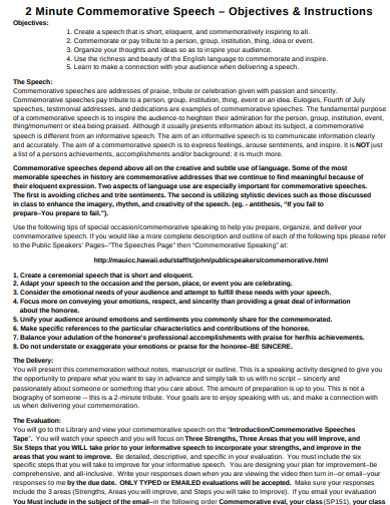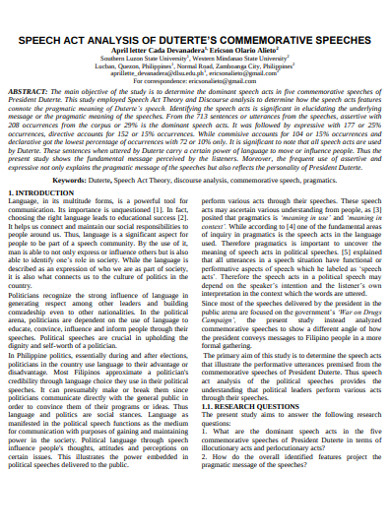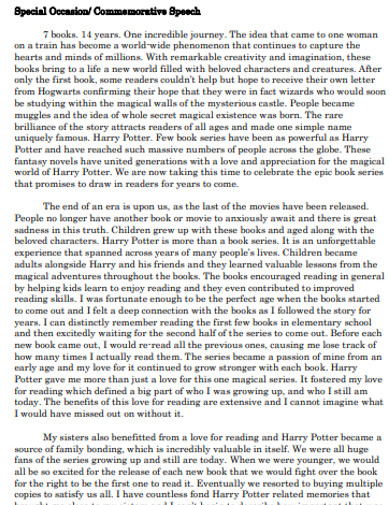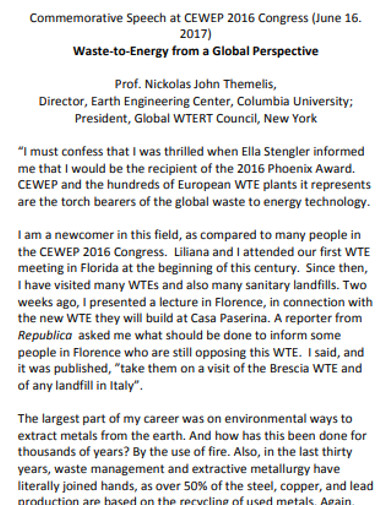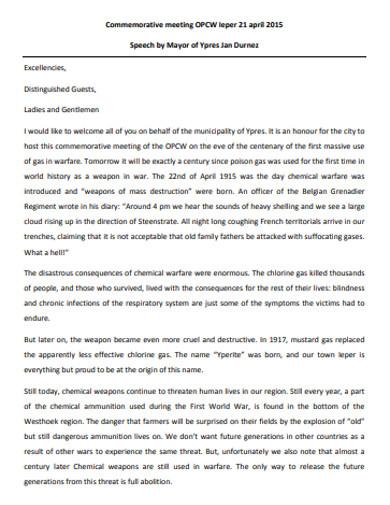7+ Commemorative Speech Examples to Download
What is the first thing that pops into your mind when you think of a commemorative speech? Four words: graduation and recognition day. Well, you are not wrong about that. Merriam-Webster defines commemorate as either to celebrate (an event, a person, or a situation) by doing or building something or to recall and show respect for (someone or something). But have you ever wondered why this type of speech is normally given on those days? Not just because that particular day marks the students’ achievement or moving forward in their academic studies, but commemorative speeches act as a way to inspire the students in keeping up the good work they by inputting values. You may also see thank-you speech.
What is a Commemorative Speech?
According to an article in the University of Pittsburgh database, commemorative speeches are sometimes known as “ceremonial” or “epideictic” speeches. They are often used to pay tribute or praise a person, an institution, an event, idea, or place with their emphasis on values. It can be said that all societies hold certain values central to human existence: beauty, loyalty, wisdom, kindness, tradition, success, innocence, experience, courage, perseverance, kindness, for instance. Commemorative speeches celebrate these values. Some types of commemorative speeches include the eulogy, the speech of nomination, the speech of goodwill, the wedding toast, and the award acceptance speech. You may also see presentation speech.
Commemorative speeches are not simply informative, they act as a way for people to remember why they celebrate that in the first place. For example, a speaker would not just give a biography of who George Washington was, but rather would celebrate who he was, why he was worthy of praise, and encourage the audience to celebrate those values. You may also see orientation speech.
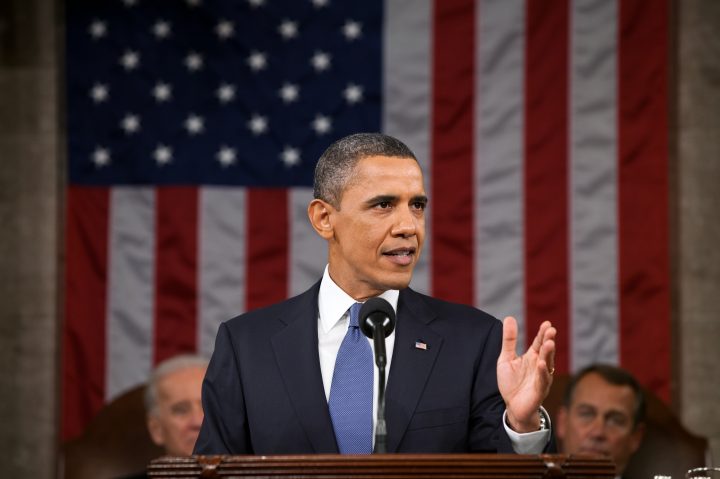
Commemorative Speaking and the Future
Often, inspiring commemorative speeches goes beyond celebrating past or present accomplishments to give the audience hope for the future. Take the case of famous personalities like Nelson Mandela or Dr. Martin Luther King. These two men may come from different parts of the world, but they stood up for something that inspired the people to stand up for what is right and combat the injustices that they face despite all odds (Mandela against racism in Africa and Dr. Martin Luther King for equal rights for all African-Americans); some people would refer to these personalities in their speeches. Try to consider how the speaker can link past, present, and future in a commemorative speech. You may also see introduction speech
Commemorative Speech Example
Sample Commemorative Speech
Commemorative Speech in PDF
Language becomes an essential part of effective commemorative speeches especially when using stories, illustrations, and figurative language to help the audience to relate your experience.Note that it is difficult to pay tribute to trivial topics. Therefore, a commemorative speech on, say, “tailgating parties” would not be appropriate. You may also see farewell speech
This speech is about what is most important to society –honor, trust, gentleness, etc.

Brainstorming Topic Ideas
Before writing a commemorative speech, brainstorm some ideas for information that you could include in your speech according to YourDictionary, an affiliate of LoveToKnow Media.
- What memories, ideas, or information about this person would you want to share with a greater audience?
- How can you respectfully share the significance of this person with others?
- What stories would you want to hear when listening to this commemorative speech?
The end goal of your commemorative speech should not only be to make the audience remember your words of wisdom, but to fully express yourself in order to motivate others to feel strongly as well. Oftentimes, these speeches are filled with emotion, and other times, they are filled with inspiration, hope, and information.You may also see motivational speech
Commemorative Speechwriting
As you write your speech, make sure you have friends or colleagues who are willing to listen to your draft before finalizing your speech. The spoken word – especially when words are caught between tears of sadness – can be difficult to understand, so something on paper that makes sense might not be easy to understand aloud. You are going to need to rely on others for advice about changing phrasing, word order, and even speech patterns so that what you write becomes comprehensible. Keep this in mind as you formulate your speech on paper. You may also see declamation speech
Think about the person, place, or other thing that is being praised through your speech.
- Can you balance tradition and formality with personal touches within your speech?
- Make sure that your words are respectful: Lots of people will hear this speech, and some might judge you based upon the stories you share and the speech elements you include.
- Write from the heart. It is obvious when you are speaking about something you care very little about.
If you are not inspired, talk to others who have been motivated and inspired by the thing you are commemorating, and see if you can draw ideas and inspiration from their passion.
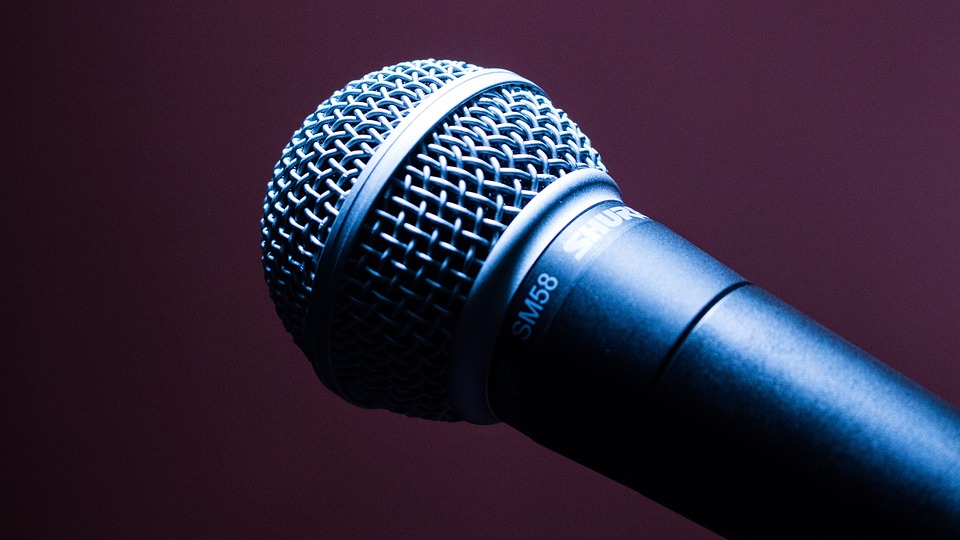
Tips and Tricks for Writing Your Best Speech
Keep in mind that depending on the type of speech you will be delivering and to whom you will be speaking to, it is important that you adjust the content of the message and perhaps some of the terminologies present in your speech, so that the audience can understand your speech better. You may also see leadership speech.
- Clarity and conciseness are key in delivering an awesome speech. Try to take the time to explain things instead of using jargon that might leave the audience confused.
- Avoid talking down to an audience of professionals. Make it a point that your tone is reserved and respectful instead of boastful of your own knowledge.
Remember that this speech is not about you, nor is it in reality about the person being commemorated. The key is to speak for the audience. You are really there to help people deal with their feelings, let them express themselves, and to represent the collective voice. You may also see welcome speech.
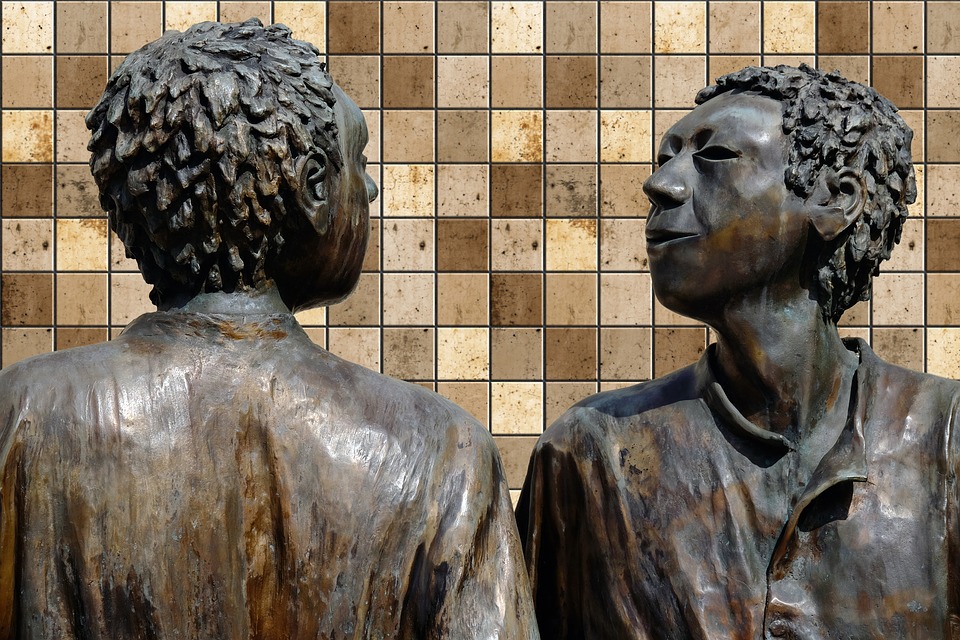
Do not use this speech as a chance for self-promotion or to share your hubris. If you are worried about how people will perceive you, remember that if you can give a selfless speech, this will speak more than threading personal pats-on-the-back throughout your speech.When writing a commemorative speech, keep it simple, respectful, and honorable. It is common courtesy, after all. You may also see informative speech



